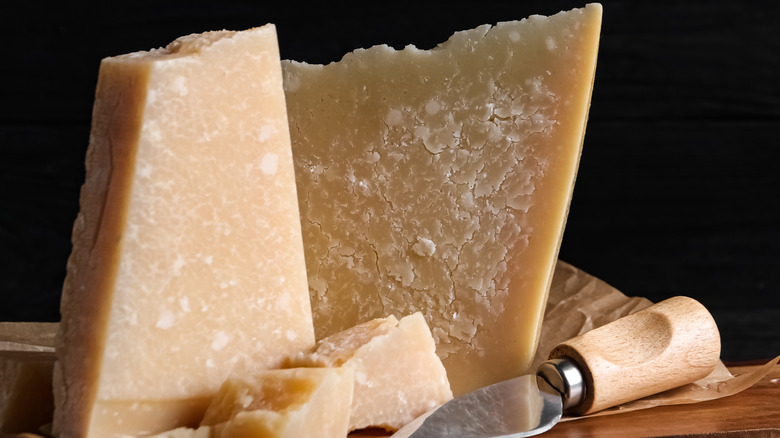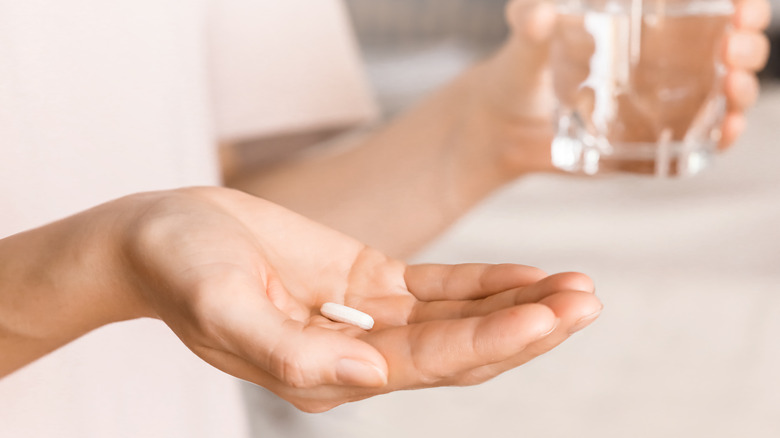Medications That Could Have Negative Interactions With Foods High In Tyramine
It's common for medications to come with a list of possible negative interactions, especially when the medication is a new one. While there are often other drug interactions, medications can sometimes interact with certain substances in foods. One of these substances is called tyramine.
Tyramine is a compound found naturally in some plants and animals, according to WebMD. When tyrosine — an amino acid — breaks down, tyramine is the by-product. Foods that are high in tyramine include aged cheeses, cured meats, citrus fruits, and fermented vegetables like sauerkraut or kimchi. Alcoholic beverages are also high in tyramine. When we consume tyramine, our bodies use an enzyme called monoamine oxidase to break it down. If we don't have enough monoamine oxidase to process the tyramine, it can result in high levels. Having high levels of tyramine can cause migraine headaches and high blood pressure. If levels become dangerously high, blood pressure can spike and require emergency treatment (via the Mayo Clinic). Common symptoms of a blood pressure spike include nausea, sweating, rapid heart rate, headache, chest pain, and shortness of breath.
How MAOIs and foods high in tyramine interact
One medication that has negative interactions with foods high in tyramine is a certain type of antidepressant called monoamine oxidase inhibitors (MAOIs) (via Healthline). It's believed that in depression, neurotransmitters in the brain are low. These chemicals, like dopamine and serotonin, are collectively called monoamines. The enzyme, monoamine oxidase, removes these neurotransmitters — MAOIs work by blocking this enzyme, which can help relieve depression.
MAOIs were introduced in the 1950s and are a less common choice for antidepressant medications now. While scientists didn't understand the connection between MAOIs and tyramine at first, it's now understood that foods high in tyramine should be avoided while taking MAOIs. It can lead to high levels of tyramine in the body and result in serious health concerns. While MAOIs might not be appropriate for everyone, with the right therapies and lifestyle changes, they may still offer relief from depression symptoms.


